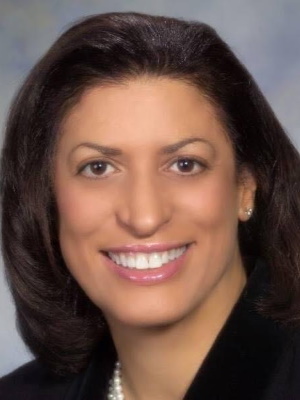Coming Home: New Social Work professor hopes to inspire historically underrepresented students
Born and raised in Detroit, Diane Fuselier-Thompson, PhD (affectionately known as “Dr. D”) is coming back full circle to her network of friends and family.
Detroit is home for me. I was drawn to Wayne State University and the School of Social Work in particular because of the location in Detroit and its urban mission driven committment to its residents. I cannot think of a better way than to bring my 30 years of experience and research back to the area that served as an incredible foundation for my education. - Diane Fuselier-Thompson
 Social Work's newest faculty member is a first-generation college graduate, who earned both her bachelor of arts and master of social work from the University of Michigan. Prior to joining the School as an Assistant Professor, Teaching in fall 2022, Fuselier-Thompson held administrative positions at U of M. She then went on to pursue her PhD in educational policy at the University of Illinois at Urbana-Champaign. She is a Senior Clinician in Psychiatric Emergency Services and maintains a private practice, where she sees adolescents, adults, and couples.
Social Work's newest faculty member is a first-generation college graduate, who earned both her bachelor of arts and master of social work from the University of Michigan. Prior to joining the School as an Assistant Professor, Teaching in fall 2022, Fuselier-Thompson held administrative positions at U of M. She then went on to pursue her PhD in educational policy at the University of Illinois at Urbana-Champaign. She is a Senior Clinician in Psychiatric Emergency Services and maintains a private practice, where she sees adolescents, adults, and couples.
Her research interests include issues of college access and equity, P-20 educational initiatives, urban contexts, minority women in engineering, and global initiatives.
“I would like to engage in collaborative mental health clinical research with the School of Medicine, Department of Psychiatry, and community partners to help better prepare students for the psychological challenges of postsecondary education. I am confident my research will attract interns from interdisciplinary fields of study who will collaborate on solutions for diverse students.”
Fuselier-Thompson’s work in developing educational outreach and transition programs for minority and non-traditional students informed her dissertation topic. In the classroom, her teaching focuses on developing experiential learning opportunities that engage students in diverse cultures and urban contexts.
Fuselier-Thompson’s community to community service includes serving for 12 years on the board of directors at a local charter school, serving as both president and vice president during her reign. The school serves primarily minority students in grades pre-K through 12 and provides the opportunity to obtain a tuition-free associate degree upon high school graduation, in partnership with metropolitan Detroit area colleges.
She and other colleagues contributed to a book chapter in ‘Reauthoring Savage Inequalities,’ which chronicles their educational journey in Detroit and identifies some of the formal and informal networks that helped them be successful in postsecondary education.
“Our narrative and collective experiences contradict that of Jonathan Kozol (‘Savage Inequalities’). Kozol wrote that ‘urban students are doomed by virtue of their environmental influences.’ The premise of his research does not acknowledge or place a value on the social and cultural wealth of predominantly minority urban communities, and the informal networks that exist to prepare students for educational success.”
Her goal is to help urban students understand the value of their community networks, especially those that prepare them for a college trajectory.
Fuselier-Thompson also co-authored a chapter in the Journal of the International Association for the Study of the Global Achievement Gap. The chapter, entitled “Minority Women in STEM: A Valuable Resource in the Global Economy,” explores why few minority women successfully attain baccalaureate degrees in science, technology, engineering, and mathematical (STEM) fields.
An excerpt from the chapter reads: “We found that limited access to the field, isolation and alienation, as well as affordability creates institutional barriers that result in some minority women leaving STEM fields. With adequate support and resources in college, women of color could fulfill a critical U.S. shortage of technical skills and knowledge, while diversifying the workforce in response to the rapidly growing global economy.”
Fuselier-Thompson has extensive global experience, having traveled throughout Mexico and Southeast Asia as a guest lecturer and developing university, industry, and research collaborations. She hopes to use her clinical and teaching experience, grounded in principles of diversity, equity and inclusion to teach courses focusing on urban poverty, disparities in health care across the life span, and educational inequities.
“My new position at WSU will allow me to give back to my community in multiple ways and cultivate the learning experiences of culturally responsive social work practitioners,” she said.
Learn more about Fuselier-Thompson by reading her faculty profile.
Author: Laura Hipshire laurahipshire@wayne.edu